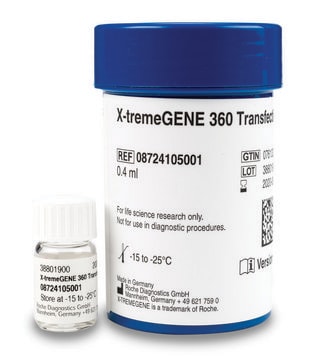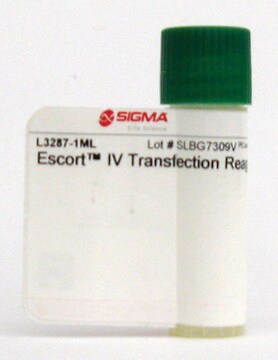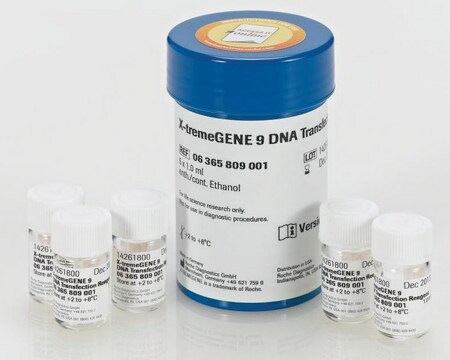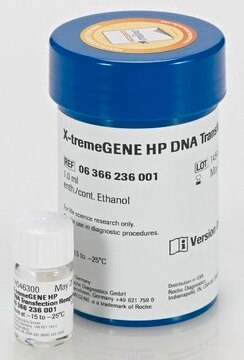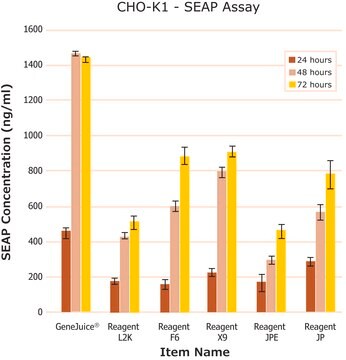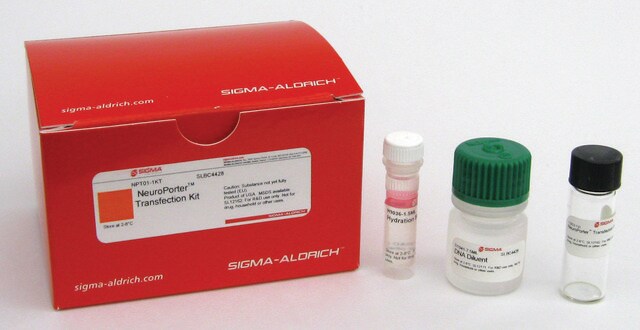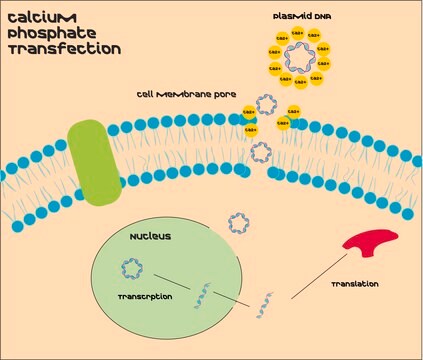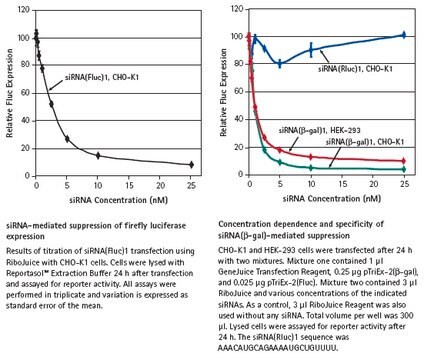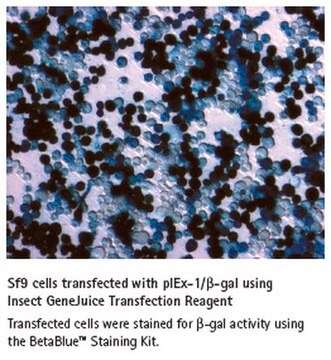L3037
Escort™ III Transfection Reagent
Lipid reagent for transfecting sensitive and primary cells
About This Item
Productos recomendados
grade
for molecular biology
Quality Level
form
liquid (aqueous solution)
usage
1 mL sufficient for 250-1000 transfections
concentration
1 mg/mL
technique(s)
transfection: suitable
storage temp.
2-8°C
General description
Application
A549
C2C12 myotubes
Cardiomyocytes (rat)
COS-7
Fibroblasts (rat)
Germ cells (male rat)
Hepatocytes (rat and hamster)
HepG2
HeLa
Jurkat
Keratinocytes (human)
Myoblasts (mouse and quail)
Myocytes (mouse)
NIH3T3
PC-12
Retinal Neurons (rat)
Tracheobronchial cells (sheep)
Features and Benefits
- Suitable for stable and transient transfection
- Optimized for a wide variety of primary cells
- Low toxicity
- Compatible with both serum and serum-free transfection protocols
- Ideal for PC-12 cells
Components
1 mg/mL total lipid in water
Note the identity of the lipids used in Escort™ III is confidential.
Caution
Principle
Legal Information
Related product
Storage Class
10 - Combustible liquids
wgk_germany
WGK 3
flash_point_f
Not applicable
flash_point_c
Not applicable
ppe
Eyeshields, Gloves
Certificados de análisis (COA)
Busque Certificados de análisis (COA) introduciendo el número de lote del producto. Los números de lote se encuentran en la etiqueta del producto después de las palabras «Lot» o «Batch»
¿Ya tiene este producto?
Encuentre la documentación para los productos que ha comprado recientemente en la Biblioteca de documentos.
Los clientes también vieron
Artículos
Transfection is the introduction of DNA, RNA, or proteins into eukaryotic cells and is used in research to study and modulate gene expression. Thus, transfection techniques and protocols serve as an analytical tool that facilitates the characterization of genetic functions, protein synthesis, cell growth and development.
This brief webinar provides an overview of what transfection is and the methods that are used to introduce DNA or RNA into eukaryotic cells.
Contenido relacionado
Browse our convenient transfection reagent selection guide to match the best reagent for your specific cell line and application needs.
Nuestro equipo de científicos tiene experiencia en todas las áreas de investigación: Ciencias de la vida, Ciencia de los materiales, Síntesis química, Cromatografía, Analítica y muchas otras.
Póngase en contacto con el Servicio técnico